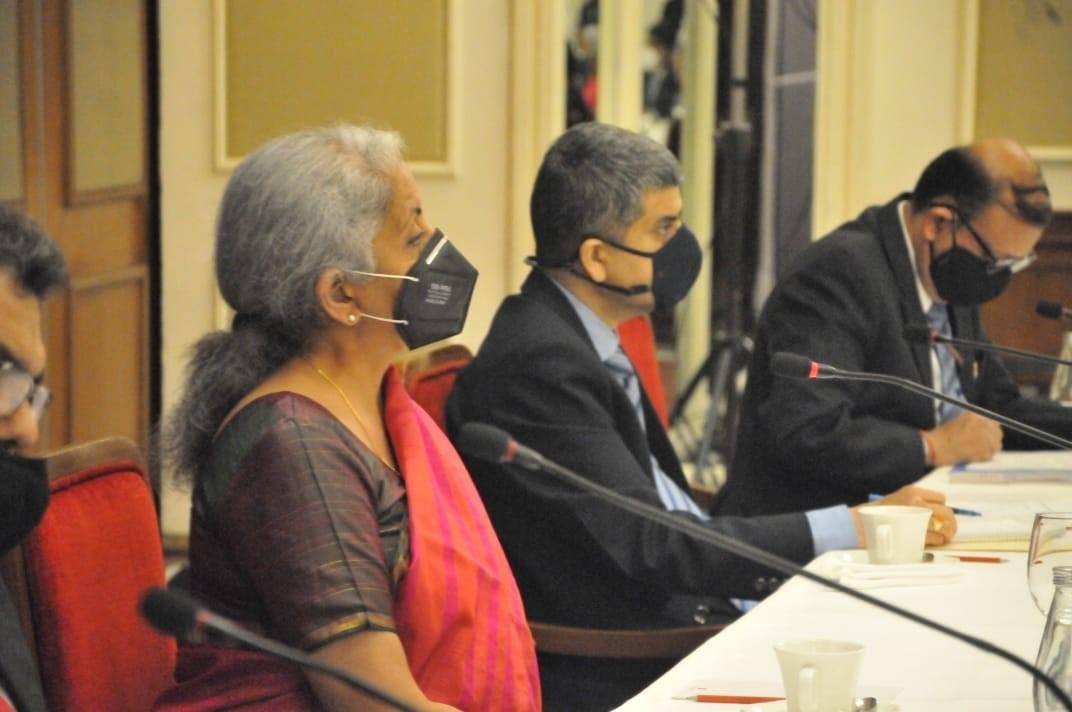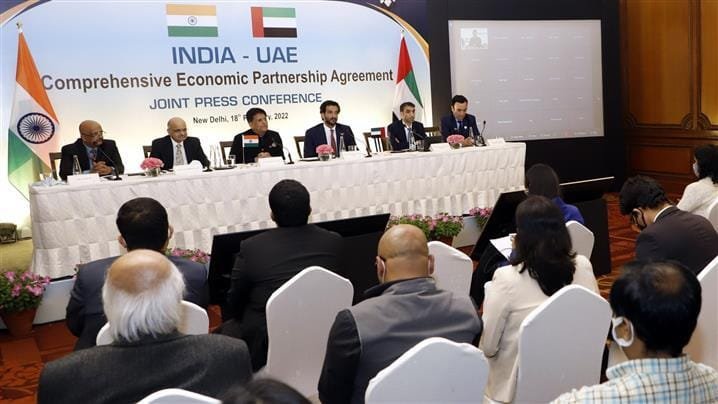37 reforms undertaken since 2003, notes expert

India needs work on ‘Ease of Starting Business’, says Vinod Rai, Vinod Rai is Distinguished Visiting Research Fellow at the Institute of South Asian Studies (ISAS) in a paper.
India’s Improved ‘Ease of Doing Business’ Ranking: Concrete Steps and Mindset Change The World Bank has, in its 2018 report on ‘Doing Business’, lauded the efforts of the Indian government at undertaking reforms which have vastly helped improve the business environment in India, in terms of 10 Parameters which constitute the indices for the bank’s survey. Though the improvement is not uniform in regard to all the 10 parameters, the apparently systematic and resolute manner in which the government is making efforts does indicate that India’s objective of making it to the top 50 countries could be achieved soon. The World Bank’s latest ranking is a major breakthrough for India as an attractive investment destination, this will also help restore the confidence of entrepreneurs in the administration after its recent initiatives like demonetisation and Goods and Services Tax had caused some dislocation in the small businesses sector.
The Indian government’s efforts to make it easier to do business in the country have received a huge validation with the release of the World Bank’s report, ‘Doing Business 2018: Reforming to Create Jobs’. The report indicates that India has jumped up 30 positions to reach 100 among 190 countries on the ‘Ease of Doing Business’ index. Significantly, India has been placed at the fifth position among the best-performing nations globally for reforming the business environment. The country seems to have improved in regard to six out of the ten parameters that the bank uses to judge the climate for doing business. The categories in which the reforms have been acknowledged to promote the ease of doing business are paying taxes, resolving insolvency, getting credit, protecting minority investors, enforcing contracts and dealing with construction permits.
The World Bank acknowledges that the country had undertaken 37 reforms from 2003, half of which have been implemented under the present government. This will certainly boost investor sentiment. Persuading India’s large and monolithic bureaucracy or, in effect, making the elephant dance, is not the easiest of reform measures. It is also a slow change-resistant process; irrespective of the larger commercial benefits for the country at the macro level, no inspector likes to see the power of regulation or control slip out of his hands. The very thought of not being in control is repugnant to the Indian bureaucracy!
As such, the entire process is one of persuading and cajoling the field staff and drawing up regulations which remove the element of discretion
from the individual inspector’s hands.
Ease of starting a business
The Narendra Modi government in India is reported to have begun giving accolades to itself over the findings of the report, although the all-important ‘ease of starting a business’ factor has not shown any improvement. India continues to be in the 155th position on this aspect – it has moved up by only one place from the earlier 156th ranking. Trading across borders has also shown only a marginal improvement as India finds itself ranked 143, an improvement of just three positions from the previous 146. Another aspect which touches the common man – registering property – has also seen only a marginal upward movement to the 138th position from 154. There is very little progress in digitising land records. Property documents remain complicated, and applicants still run from pillar to post. India still has a long way to go in
respect of the parameter of enforcing contracts or dealing with construction permits. In fact, the time taken to enforce a contract is longer today at 1,445 days against 1,420 days about 15
years back.
In starting a business, India has reduced the time taken to register a new business to 30 days from the 127 days 15 years ago. While this does constitute substantial progress in the right direction, India continues to lag behind countries such as China, Russia and South Africa.
Nevertheless, the parameters which have registered improvement are very critical. In India, the process of paying tax was, often times, not easy despite the fact that an individual was willing to pay to do it. The tax-payer can now hope to reduce his liability by not having to part with some ‘convenience money’ or ‘consultancy money’ to the tax administrator. By ensuring that the payment process is now undertaken electronically, the human factor has been negated. This has automatically eliminated the conduit for leakage. While this is indeed an encouraging development, India still has to contend with the fact that there are serious tax complications which, for instance, have forced Nokia to close shop in India despite the fact that the country has the fastest-growing demand for mobile phones. Moreover, India has contentious on-going discussions on tax-related issues with Vodafone and Cairn Energy.
Businesses always gravitate to stable and predictable tax regimes. They like to factor the tax element in their long-term programmes and would like to have absolute certainty in doing so. The overall policy environment in India, therefore, has to be supportive of, and responsive to, business needs. In this context, the improvement in the ease of paying tax is certainly a welcome development.
The resolute steps taken by the government to move towards ensuring the ease of doing business should be applauded. The Department of Industrial Policy and Promotion attempted to make India rise to the top 50 ranks in ease of doing business by initiating changes within the legal framework of each of the relevant agencies. Invariably, the most difficult to handle were the municipal corporations and other utility bodies – it was an onerous task to persuade them to initiate an online process for the application for connections and the payment of bills.
In fact, the process of online payment of taxes to the municipal corporations has been a large contributor to the ease of payment of taxes. The fact that the municipal bodies have created online WhatsApp groups to address user-grievances is a remarkable progress in terms of
changing mindsets and creating a helpful/supportive environment.
The government also strove to cajole its own departments to simplify their processes and make them available online, there making human intervention redundant. Some of the major successes in this respect were the reduced number of forms to be completed, online application for refunds and the time limit within which these refunds should be released by agencies such as customs and other tax-collecting departments. The government also took the significant initiative of publicising the measures taken by the government departments so as to maximise online activity with businesses, entrepreneurs and other commercial agencies. A new set of much-simpler online applications for business incorporation, which combine the Permanent Account Number with the Tax Account Number, has been a major achievement.
The implementation of the Insolvency and Bankruptcy Act has also infused confidence among lenders in the resolution of stressed assets being undertaken within a time limit. The Act has introduced a reorganisation procedure for corporate debtors and facilitated continuation of the debtor’s businesses during insolvency proceedings and has made it easier for companies to exit businesses and free up capital.
It is undeniable that, in 2017, the government has achieved the fastest upward progress in a single year in terms of the ease of doing business. It is also for the first time that the World Bank was persuaded to undertake the perception of business survey not only in Mumbai, as in the past, but also in Delhi. Thus, while the government does deserve kudos for working towards improving India’s ranking in the World Bank report, it must recognise that it still has a long way to go and, hence, needs to tenaciously continue on the path it has taken by persuading key departments to bring about further mindset changes. That will be the ultimate step in ensuring much greater success in ensuring the ease of doing business in India.
Vinod Rai is Distinguished Visiting Research Fellow at the Institute of South Asian Studies (ISAS), an autonomous research institute at the National University of Singapore. He is a former Comptroller and Auditor General of India. He can be contacted at isasvr@nus.edu.sg. The author bears full responsibility for the facts cited and opinions expressed in this paper.Source: Institute of South Asian Studies.
-/fii-news.com









